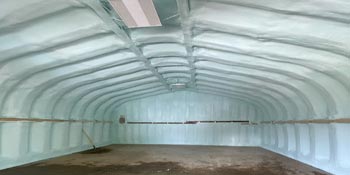Spray Foam Insulation
Affordable Insulation Experts with 5 Star Reviews
- Residential, Commercial, Industrial, Agricultural
- Local Experienced Experts
- Licensed and Insured
- Top Grade Products
- FREE Competitive Quotes
Request FREE Spray Foam Insulation Quote
Discover Rebate Opportunities!
Spray Foam Insulation Benefits
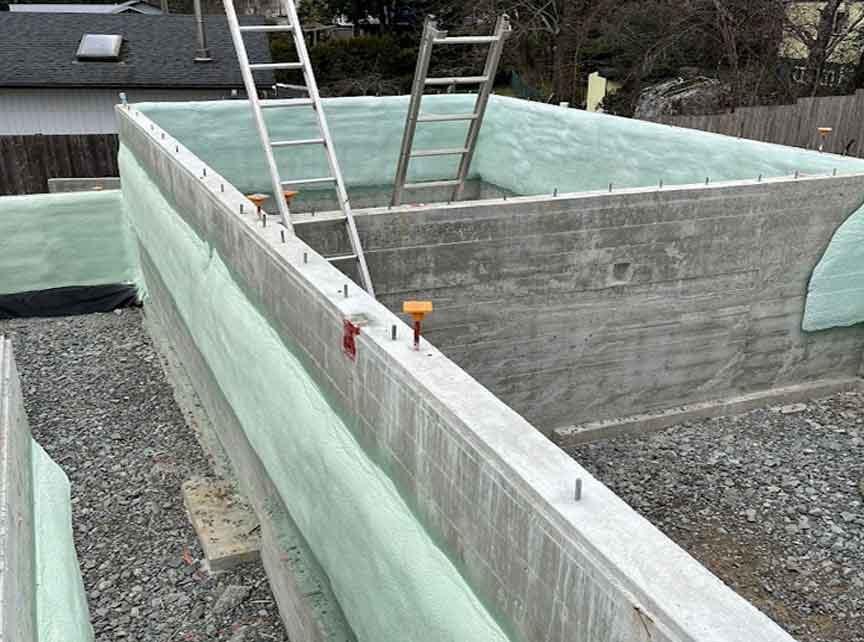
Outstanding Thermal Performance
Structural Integrity
Reduce Moisture Intrusion
Reduce Air Leakage
Protects Against Health Risks
Longest Insulation Lifespan
Check Our Our Spray Foam Products!
Spray Foam Insulation by Trusted Local Professionals
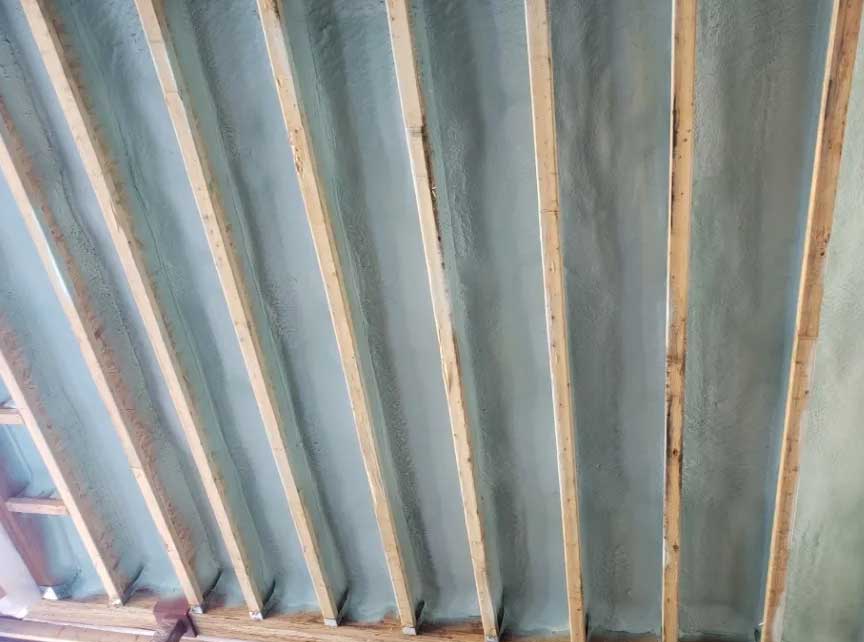
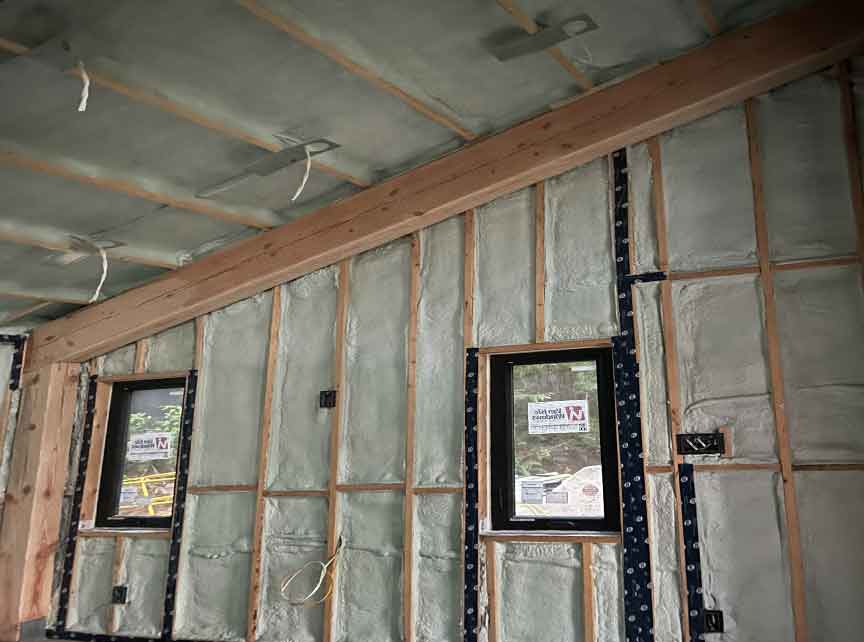
Discover the Benefits of Spray Foam Insulation in Victoria, BC with Advance Insulation Canada
Are you looking for a reliable and efficient insulation solution for your home or business in Victoria, British Columbia? Look no further than spray foam insulation from Advance Insulation Canada. As the top-rated experts in the industry, we provide high-quality insulation services that elevate the performance of your building envelope, ensuring optimal comfort and energy efficiency.
The Most Energy-Efficient Insulation Material
By conserving energy, spray foam insulation saves you money on utility bills and reduces your carbon footprint, contributing to a more sustainable future. Additionally, it minimizes the risk of mold growth, outdoor allergens, and pollutants entering your living space, creating a healthier indoor environment. Spray foam even deters unwanted pests like rodents and insects from using your insulation as a home or nesting ground, providing an added layer of protection for your property.
Versatile and Long-Lasting Protection
Unlike other insulation materials, spray foam has a virtually unlimited lifespan. It resists deterioration, settlement, and compression, ensuring long-lasting functionality and protection for your property. Once applied, spray foam insulation requires no maintenance, providing a hassle-free solution for your insulation needs.
Why choose spray foam insulation?
Spray foam insulation offers numerous advantages over traditional insulation materials. With its exceptionally high R-value per inch, spray foam provides superior thermal performance, protecting your property from extreme temperatures. This innovative insulation material effectively retains heat during winter and can result in significant annual energy cost reductions of up to 50%! It acts as a barrier against excess heat in the summer, creating a consistently cool and comfortable indoor environment.
In addition to its thermal benefits, spray foam insulation enhances the structural integrity of your building. Its rigidity provides an extra support layer, strengthening the overall structure and durability. As a vapor barrier, spray foam minimizes the risk of moisture intrusion into wall cavities, helping protect your property from potential water damage and mold growth.
Also, spray foam insulation offers excellent sound-dampening properties, reducing noise transmission between rooms and from the exterior. This added benefit creates a more peaceful and quieter living or working space, enhancing the overall comfort of your property.
Why choose Advance Insulation Canada?
Advance Insulation Canada is the premier choice for insulation services in Victoria, BC as well as Fort McMurray, BC. Our commitment to excellence, expertise, and customer satisfaction sets us apart.
At Advance Insulation Canada, we are committed to providing exceptional insulation services to our clients in Victoria, BC. Our team of experienced professionals follows strict company protocols to ensure that your property remains clean and tidy throughout every job. We pride ourselves on our attention to detail, professionalism, and customer satisfaction.
We offer a comprehensive range of insulation services, including spray foam insulation, fireproofing, acoustical and thermal spray, attic insulation, blown-in insulation, protective coatings, Quonset insulation, commercial insulation, basement insulation, crawl space insulation, and sea can insulation. Our knowledgeable team will assess your unique requirements and recommend the best insulation solution tailored to your needs.
How can I contact Advance Insulation Canada?
Contact us at our >Victoria, BC office or our >Fort McMurray, AB office.
Ready to experience the benefits of spray foam insulation in Victoria, BC? Contact Advance Insulation Canada today for a FREE quote. Our team is dedicated to providing the best service possible and ensuring that your home or business needs are properly addressed. We strive to build long-lasting relationships with our clients, offering expert advice, transparent pricing, and exceptional craftsmanship.
Don’t settle for less, trust the industry’s top-rated experts for all your insulation needs. With Advance Insulation Canada, you can rest assured that your property will receive the highest protection, comfort, and energy efficiency. Contact us today to schedule your free consultation and take the first step toward a more comfortable and sustainable future.
How long does spray foam insulation last?
How much energy can I save with spray foam insulation?
Can spray foam insulation be applied to existing buildings?
Is spray foam insulation safe?
Give us a call today or fill out our online form for a FREE quote. Our goal is to ensure that your home or business needs are properly addressed and you receive the service you deserve.
What Our Customers Say About Us!
Spray Foam Insulation Products
Demilec (Heatlok Soya) 2 lb closed cell spray foam is a two-component, low GWP spray-applied rigid polyurethane foam system. Heatlok Soya material complies with the requirements of the National Building Code of Canada. This product is commonly used as a thermal insulation product, air barrier, and vapour barrier for interior or exterior applications above and below grade.
Attic floor or roof sheeting
Interior wall insulation
Exterior, below-grade and under-slab applications
Box joists and cantilevers
Industrial conduit pipes
Exterior wall insulation
Attic floor or roof sheeting
Exterior, below-grade and under-slab applications
Box joists and cantilevers
Freezers and coolers
Industrial conduit pipes
Our Other Great Spray Foam Insulation Services
Have a specific area that you want spray foam insulated? Here’s our most popular services for spray foam.
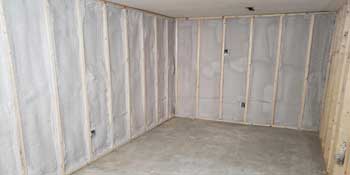
High-efficiency insulation with an airtight seal for optimal temperature control.
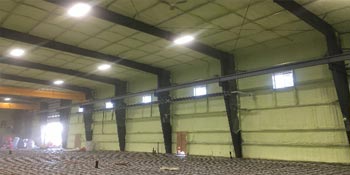
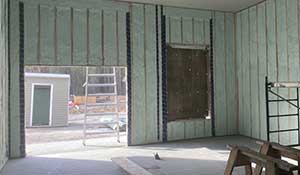



Give us a call today or fill out our online form for a FREE quote. Our goal is to ensure that your home or business needs are properly addressed and you receive the service you deserve.
Spray Foam Insulation FAQ
What is spray foam insulation made out of?
Spray foam insulation comprises two primary components: polyurethane and a blowing agent. Once mixed, it can be conveniently applied by spraying it onto the desired surfaces. Upon application, the foam will expand and eventually solidify, providing the desired hardened finish. Polyurethane is a synthetic material that serves as the base of the foam. It is responsible for giving insulation properties.
The blowing agent, is the component that aids in the expansion of the foam and the formation of those tiny, insulating bubbles. It has the potential to be either water, a chemical compound, or even a combination of both. When the foam expands, it can fill gaps and crevices, which can be very beneficial for sealing your home against drafts and heat loss.
The two main types of spray foam insulation are open-cell and closed-cell. Open-cell foam is typically softer and less dense compared to closed-cell foam, which tends to be denser and more rigid in nature. The type of material you choose will ultimately depend on your specific needs and the project you are currently working on.
It is worth mentioning that the blowing agents used in spray foam insulation have undergone significant advancements to enhance their environmental friendliness. When it comes to modern spray foams, it’s great to see that many of them now utilize low-global warming potential blowing agents. This choice helps to minimize their impact on the environment, which is a positive step forward.
Why is spray foam insulation a good choice?
There are many reasons why spray foam insulation is a good option. First, it’s a great insulator, making your home comfortable year-round. It blocks cracks and openings so no warm air may escape and deters rodents!
In addition to making your home more comfortable, spray foam can reduce energy consumption and costs. It prevents moisture from entering your property and serves as a shield against mold and structural damage.
As a bonus, spray foam insulation is adaptable and may be used in various environments. It maintains its shape and performance over time without sagging or settling.
Spray foam insulation is a worthwhile expenditure because it improves indoor air quality, reduces heating and cooling costs, and fortifies a building against natural disasters.
Said spray foam insulation is an adaptable and efficient method of insulating your home using polyurethane and a blowing agent. To protect your home’s walls, attic, and other spaces, this is the best option.
Do I ever need to top up spray foam insulation?
No, spray foam insulation rarely requires top up. When correctly installed, spray foam retains its insulating properties for decades, long after conventional insulation materials have settled or degraded. It retains its shape, doesn’t shrink, and never runs out.
Spray foam creates a long-lasting, leak-proof seal that keeps insulating and conserving energy. To ensure reliable operation over time, however, the initial installation must be done correctly.
Our insulation contractors are the best people to talk to if you have any doubts regarding the state of your insulation or if you have any reason to believe that damage has occurred. Spray foam insulation, if properly installed and maintained, can last for decades without needing to be replaced.
Are there spray foam insulation rebates?
Spray foam insulation does qualify for rebates and other financial incentives.
These initiatives often differ by region and over time.
Check our rebates page on our website or give us a call for the most up-to-date information on rebates available in your area. You can save money on your insulation project by taking advantage of the rebates, tax credits, and incentives for which you may be eligible, information about which we can provide.
Call us if you want to learn more about the incentives we offer in your area.
How does spray foam's R-value differ from other insulation?
Compared to closed-cell spray foam, open-cell spray foam typically has an R-value per inch between 3.5 and 4.0. It’s less insulating than closed-cell foam, but it’s better than most alternatives.
Spray foam has a high R-value, insulating more effectively while taking up less room. This is helpful in places where installing thicker insulation, like walls or attics, would be impractical. Due to its high R-value, spray foam insulation is widely considered to be the best option for those looking to cut down on energy costs and improve the comfort of their homes.
Should I use open or closed cell insulation?
Closed-cell spray foam, on the other hand, provides superior thermal insulation because it has a higher R-value per inch. It’s excellent for use in damp or humid environments because of its dense makeup and ability to act as a vapor barrier. Closed-cell foam can serve as structural support in some applications.
Considerations such as cost, insulation significance, and application location are all important considerations. Our professional insulation contractors can evaluate your situation and advise you.
Where is spray foam used in homes?
To improve a home’s energy efficiency and comfort, spray foam insulation is employed in many places. It’s most often used for:
Walls: Spray foam is used to seal gaps and minimize heat loss or gain in both external and interior walls.
Attics: Applying it in attics creates a thermal and vapour barrier and moderates the attic’s temperature.
Roofs: On the underside of the roof deck for climate regulation and water resistance.
Basements/Crawlspaces: Maintaining dry and insulated conditions in basements and crawl spaces.
Garages: Occasionally, significantly above unheated rooms like garages, floors need to be insulated.
Ductwork: ensuring that conditioned air is delivered without loss of efficiency.
Windows/Doors: To seal off air leaks around windows and doors.
Ceilings: Some people use it on their ceilings to reduce noise in their homes.
Spray foam is a popular option for homeowners who want to increase the efficiency and comfort of their houses because of its adaptability and wide range of uses.






